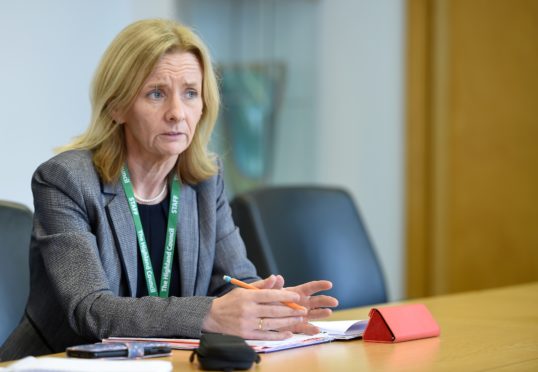Highland Council’s chief executive yesterday pulled no punches about the failure of additional supports need provision in the region – and outlined her vision for a radical transformation of the service.
Donna Manson said with a budget of more than £36million, additional support needs (ASN) receives far more than any other council service, and yet the demand continues to grow at some 20% a year with no improvement in outcomes.
That increase can not continue, she said, adding that there is ‘plenty of resource’ available to deliver the service.
The recently appointed chief executive added: “In all our outcome indicators for vulnerable young people we are not performing well as we should be,” she said.
“We are the third highest authority in spending on residential placements.
“And yet the Highlands is near the bottom of the indicators of outcomes for children who are most deprived.
“If I saw our most vulnerable children attaining in the top quartile, I would be thinking this is money well invested, but they’re not.
“For that level of resource we’re not getting anything back, and we have to look fundamentally at how we’re managing our vulnerable children.”
The council boss, who has headed education services in Fife and the Borders, said the Highland service must find agreed savings of £3.8m over the next three years.
Within that figure is a reduction of £700,000 in Pupil Support Assistant (PSA) funding, and £250,000 in the removal of vacant posts.
The cuts have sparked extreme anxiety among parents of vulnerable children who fear the loss of the PSAs whose work often ensures their children are able to cope with school.
Outrage on social media revealed a torrent of stories about failures in education provision for vulnerable children in Highland, with some receiving a partial education at best, and some no education at all.
Mrs Manson said she understood parents’ anxieties, and wanted to reassure them that resource would continue to be allocated to those with severe and complex needs.
Demands for a special school for autistic children were being looked at, she said, with a consultant in place since the start of the year to create Highland-wide picture of special needs up to 2030.
One major factor in multiplying difficulties for vulnerable children is teacher shortages, Mrs Manson said.
“Instability makes life very difficult for vulnerable children, when you have agency teachers changing all the time and the same for social workers.
“It’s noticeable that stable schools have better outcomes, whereas with instability, the demand for PSAs quickly grows.”
She said the council is working with University of the Highlands & Islands, Highlands & Island Enterprise and NHS Highland to look at ways of attracting and retaining teachers, including offering housing as part of their employment.
ASN allocations for the year ahead will be announced next month.
